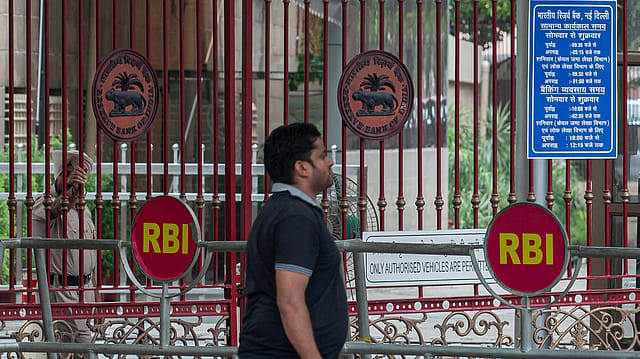Self-regulation must play far more active role in fintech sector: RBI deputy governor
ADVERTISEMENT

The agility of new-age fintech firms can challenge traditional regulatory models, making it difficult to ensure compliance at all times and maintain stability, according to Reserve Bank of India's deputy governor T Rabi Sankar.
The reliance on digital platforms also amplifies vulnerabilities to cyber threats and data breaches, Sankar says.
"As fintechs amass sensitive financial data, ensuring robust cybersecurity measures and maintaining data privacy becomes paramount to safeguarding consumer information and financial systems," the RBI deputy governor says at the Global Fintech Festival.
The rush to roll out new products and services could potentially undermine market integrity and compromise customer protection, Sankar cautions.
Therefore, while fintech innovation holds immense promise, a balanced evolution, where innovation is responsible and inclusive, is essential for the sustained positive impact of fintechs on financial services, he says.
"RBI also plays the role of regulating the evolving financial system to maintain financial stability. Rapid technology changes can outpace regulatory frameworks, and raise issues about market integrity, consumer protection, data privacy, and fair market practices," says Sankar.
It is important to recognise that regulation plays a crucial role in managing the pace of change and allows the financial system to adapt to new innovations without threatening the stability of the system, the RBI deputy governor says, adding that the focus of the Digital Lending Guidelines (DLG) on fair treatment of customers demonstrate the prioritisation of innovation with suitable guardrails.
As regulators continue to contemplate, implement, and refine regulations for the orderly development of the fintech sector, self-regulatory organisations could play a pivotal role in the fintech industry by promoting responsible practices and maintaining ethical standards, says Sankar. "These industry-led bodies establish guidelines and codes of conduct that foster transparency, fair competition, and consumer protection. SROs can facilitate collaboration between fintech firms, regulators, and stakeholders, creating a framework for innovation with guardrails. By proactively addressing issues like market integrity, conduct, data privacy, cybersecurity, and risk management, SROs help build trust among consumers, investors, and regulators," says the RBI deputy governor.
"It is crucial for fintechs to continue collaborating and innovating to enhance the effectiveness of the financial sector. Collaborating and competing with FinTechs is essential for traditional financial entities too, in order to adapt. While innovation is vital, it should also support social and economic goals. Regulation should play the role of guiding the sector to those goals. Self-regulation needs to play a far more active role too," he says.
Together, industry participants – fintech and banks alike-, regulators, and self-regulatory organisations can work harmoniously to shape a vibrant and resilient financial landscape that promotes inclusivity and progress for all, he adds.